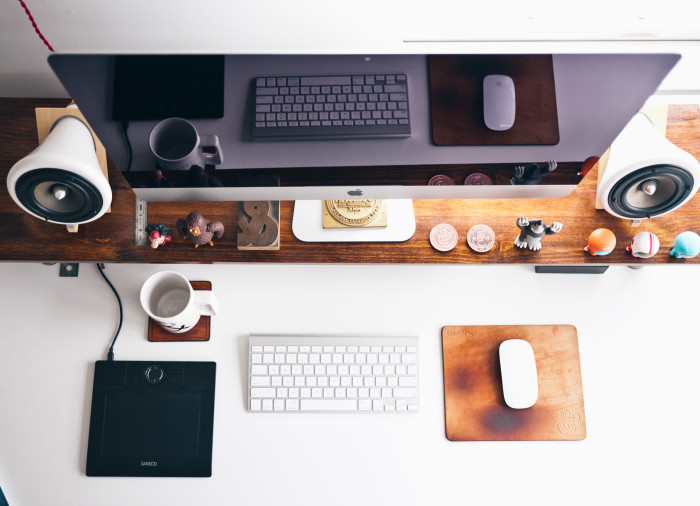When I first transitioned from a corporate job to Peaceful Dumpling over a year ago, my daily schedule changed dramatically. Here was my schedule before: I’d wake up around 7, and get to work by 9. Around 1 I got my first meaningful break, lunch time. The break part wasn’t eating the lunch at my desk, staring at my computer and feeling anxious and sad: it was the walk to the organic store. From there, I worked until 6:30 or 7, often bringing more work home. Home by 7 or 7:30, I would go for a run for an hour, followed by shower, dinner, then either job-work or Peaceful Dumpling work until bedtime…which was any time between 12 and 3 a.m., and occasionally as late as 5 a.m.
When I got the complete freedom over my schedule last February, I felt liberated but also secretly concerned. My boyfriend likewise foresaw that the sudden abundance of all that time is as likely to be *overwhelming* as exhilarating. So frightened was I of possible inefficiencies that I created a very pretty, visual daily schedule and saved it as my desktop wallpaper (i.e. 2-3 p.m. social media, 3-5 p.m. prepare tomorrow’s articles…).
I followed that daily schedule about 2-3 times max before losing my laptop. Managing time on your own so that you feel productive and balanced is a lot harder than it looks. But over time I found that the best way to do that is to focus on the ritual rather than the task.

Be steady and well-ordered in your life so that you can be fierce and original in your work. -Gustav Flaubert
My schedule didn’t work not just because I was undisciplined, but because it was too task-driven. I was asking myself to do specific things without any holistic consideration. Some days I need more time to do X, but no need for Y…And so, I’d always feel like playing catch-up, which leads to feeling defeated and unproductive.
Once I stopped pressuring myself to do X when it’s time to do X, and Y when it’s time for Y, and focused on certain ritualistic parameters, I became far more relaxed about my ability to create and handle my own workload. To give you some metrics: I write about 10,000 words a week on average (not including emails or social media) and edit about the same amount of other people’s writing. (An average novel is around 70-80,000 words). Peaceful Dumpling’s traffic has more than tripled since a year ago. I don’t consider these herculean feats by any means but I feel *balanced* about how I manage productivity in a sustainable, long-term way (might be worth noting that I never feel sad during lunchtime!).
If you manage your own time, having daily rituals is crucial for productivity (and sanity). But even if you work in a more traditional setting, rituals help break your day into parts so you stay optimized and balanced. The pressure to always be available for work is neither productive, nor emotionally satisfying. A ritual is about having boundaries in which you do your best work, so you can step in and out of it with your free will. The point is: Don’t *always* be working, but be working at the same time every day. Here are some ideas that will help you create daily rituals that work for you.
1. Start work at the same time every day.
When you start work at the same time, it precludes your “I don’t know what I should do” moments. Your “work day” can start at any hour that feels right to you: for Charles Dickens that was 9 a.m., for Balzac it was 1 a.m. and for Frank Lloyd Wright it was 4 a.m. The point is to find a time at which your mind sees a green light and thinks, “Go!”
2. Seek out an environment that’s conducive to your work.
If you ever think to yourself, “How am I supposed to work when it’s like this?” it’s time to change your surroundings. In a corporate setting, customize your work area in a manner that speaks to you both creatively and functionally. It might be a standing desk (constructed from books–be resourceful!), a good lamp, a collage of inspirational images, or a drawer full of tea things and favorite hand cream. If it helps your work to get to work 10 minutes early to settle down and make a leisurely cup of tea before everyone else gets there and the circus starts, do it.
If you work for yourself, the sky is the limit (sort of). I like to go to my cafe right at 8 a.m. when they open. I order the same French press decaf every day and stay for 3-4 hours. This leaving of my relaxing apartment and going to the work zone is crucial for me to start thinking.
3. Keep one part of your day more structured, and the rest more flexible.
If my morning cafe session is more set, my afternoon sessions are much more flexible. I come home and make a simple, quick lunch, turn on soothing music (ocean sounds, nowadays) and work in my room. Some days I break and go for a yoga class in mid-afternoon, or I might be working on a special project or running errands. This frees me from the anxiety of following a set schedule every hour of every day, and yet optimizes the hours that I do keep without fail.
4. Save yourself from having to make little decisions.
People who stick to their routines (exactly this kind of coffee at this hour, exactly this outfit or same lunch every day) know that not having to think about little choices frees up time and mental energy to devote to bigger decisions. I spend very few minutes of most days wondering about these things–all of which stay strikingly consistent day after day. This keeps my energy levels high for work, which is after all made of myriad decisions and choices.
5. Don’t be afraid to stop working.
The biggest challenge in owning your schedule is knowing when to stop working. Either, work is going really well and you’re afraid to stop, losing your “flow,” or work is going terribly and you feel like nothing has been accomplished, so you torture yourself to keep going.
In the latter case, if you truly can’t keep going, finish early. Maya Angelou, who was well known for working in a hotel room, would arrive at 7 and leave at 12:30 if the work is going badly–and stay until later in the afternoon if it’s going well. Trying to keep working when you’re out of steam can be counterproductive. On the contrary, it can be difficult to stop when you seem to have hit a stride. But some self-preservation is crucial for the long run, and an excellent 3-hour session might be just as good as a longer one. My big lesson has been this: You don’t always have to work until you’ve exhausted your last drop of strength, in order to be productive. The point is to find what helps you do great work consistently day after day.
What is your daily ritual that helps you stay productive?
Related: How to Stay Motivated When You Feel Like Shutting Down
How to Create a Distraction Free Work Space
How to Create an Inspiring Home Office
Keep up on the latest and get exclusive content just for our subscribers: Subscribe to our Inspirational Newsletter!
__
Photo: Gavin Whitner




